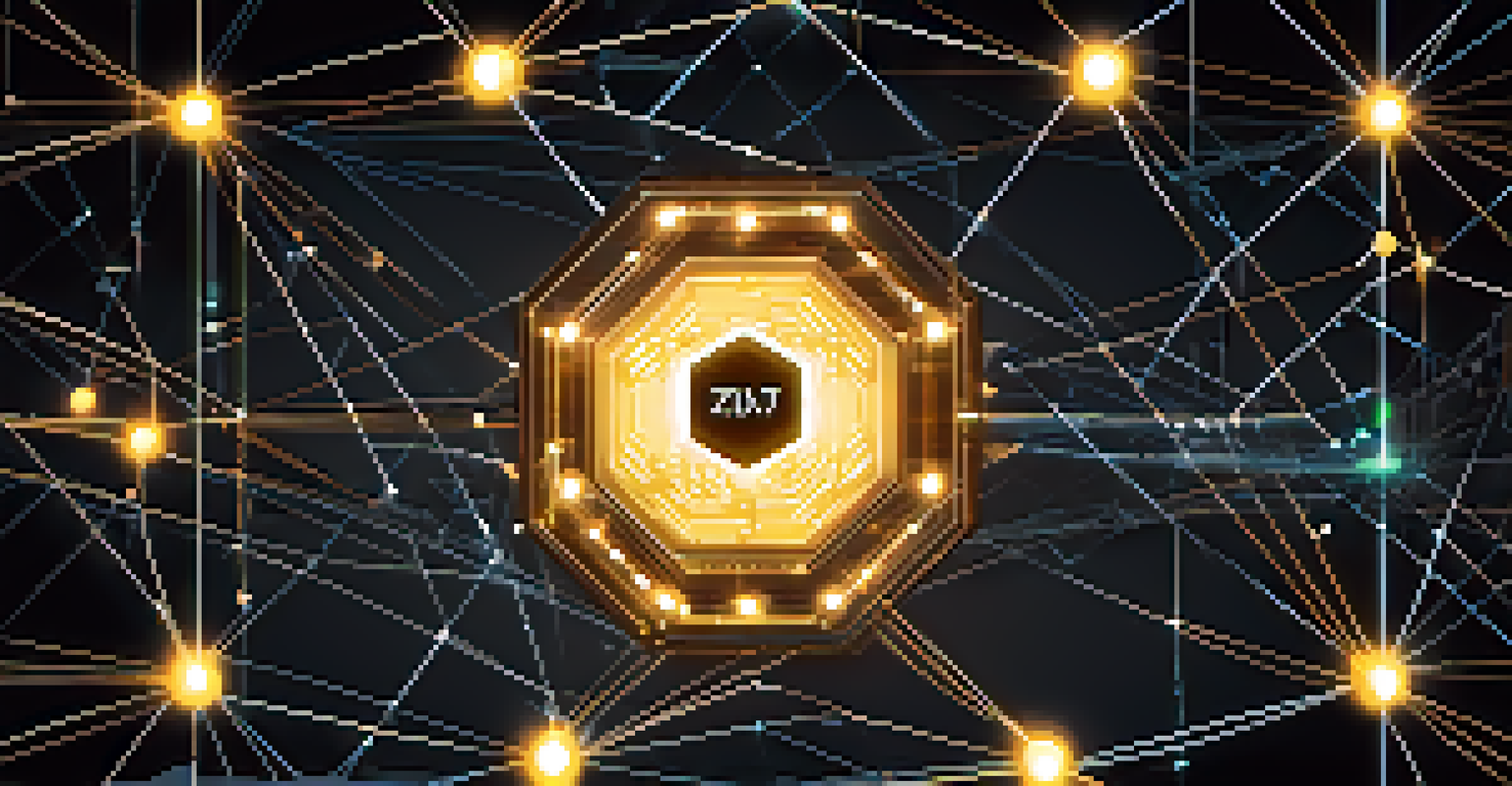Decentralized Voting: Ensuring Transparency and Trust

Understanding Decentralized Voting and Its Importance
Decentralized voting is a system where votes are cast and counted without a single controlling authority. This approach leverages blockchain technology to create a transparent and tamper-proof voting process. The need for such a system arises from growing concerns about election integrity and the potential for fraud in traditional voting methods.
Voting is the foundation of our democracy; it is the voice of the people. With advancements like decentralized voting, we can enhance that voice, ensuring it is heard loud and clear.
By distributing the voting process across multiple nodes, decentralized voting ensures that no single entity can manipulate the results. This not only enhances security but also builds trust among voters who can independently verify their votes. Essentially, it democratizes the voting process, making it accessible and reliable for all.
As we delve deeper into the advantages of decentralized voting, it's crucial to understand how this innovative method can reshape our electoral landscape. With growing interest from governments and organizations worldwide, the shift towards more transparent systems is becoming increasingly vital.
How Blockchain Technology Powers Decentralized Voting
At its core, decentralized voting relies on blockchain technology, the same system that underpins cryptocurrencies like Bitcoin. Blockchain operates as a distributed ledger, ensuring that every transaction (or vote) is recorded in a way that is secure and immutable. This means once a vote is cast, it cannot be altered or deleted, providing a permanent record.

Each participant in the voting process has access to the same information, which fosters transparency. For instance, voters can see how their votes are counted and verified, which builds confidence in the system. This transparency is key to addressing skepticism surrounding elections, as it allows for independent audits and validations.
Decentralized Voting Enhances Trust
By utilizing blockchain technology, decentralized voting creates a transparent and secure system that fosters trust among voters.
Moreover, the use of smart contracts—self-executing contracts with the terms of the agreement directly written into code—ensures that the rules governing the election are followed without human intervention. This further reduces the chances of error or manipulation, reinforcing the integrity of the voting process.
Enhancing Voter Engagement and Accessibility
Decentralized voting can significantly enhance voter engagement by making the voting process more accessible. Imagine being able to cast your vote securely from your smartphone or laptop, without the need to travel to polling stations. This convenience encourages higher voter turnout, especially among younger demographics who are more tech-savvy.
The future of voting is digital, and with blockchain technology, we can create a system that is both secure and accessible for everyone.
Additionally, decentralized voting platforms can be designed to accommodate diverse languages and accessibility needs, ensuring everyone has a voice in the democratic process. This inclusivity not only empowers individuals but also enriches the electoral outcome by reflecting a broader range of opinions.
As we seek to modernize our democratic processes, embracing technology can help bridge the gap between citizens and their governments. Decentralized voting presents an opportunity to create a more engaged and informed electorate.
Addressing Security Concerns in Decentralized Voting
While decentralized voting offers many advantages, security remains a pressing concern. Critics often question the potential for hacking or system failures, which could undermine the electoral process. However, the decentralized nature of blockchain inherently mitigates many of these risks by eliminating single points of failure.
To further bolster security, decentralized voting systems can incorporate advanced encryption techniques and multi-factor authentication. This means that even if one part of the system is compromised, the overall integrity of the voting process remains intact. Voters can feel confident that their choices are secure and protected.
Greater Accessibility for Voters
Decentralized voting allows individuals to cast their votes easily from anywhere, increasing participation, especially among younger voters.
Moreover, continuous monitoring and updates are crucial in maintaining the security of these systems. By staying ahead of potential threats and adapting to new challenges, we can ensure that decentralized voting remains a reliable option for future elections.
The Role of Governance in Decentralized Voting Systems
Effective governance is critical in any voting system, and decentralized voting is no exception. Clear rules and regulations need to be established to ensure that the process runs smoothly and fairly. This involves setting guidelines for how votes are cast, counted, and verified, as well as addressing disputes that may arise.
Additionally, the governance structure must be transparent and representative, allowing stakeholders to have a say in the decision-making process. This participatory approach fosters trust and accountability, essential elements in any electoral system. By involving the community in governance, we can create a sense of ownership and responsibility among voters.
As we look to implement decentralized voting systems, thoughtful governance will be the backbone of their success. It ensures that the technology serves the people, rather than the other way around.
Case Studies: Successful Implementations of Decentralized Voting
Several countries and organizations have already begun exploring decentralized voting systems with promising results. For instance, in 2020, Utah County in the United States successfully conducted a pilot program using blockchain to facilitate secure voting for overseas voters. This initiative not only streamlined the voting process but also provided a model for future implementations.
Similarly, the city of Zug in Switzerland, known as 'Crypto Valley,' has integrated blockchain technology into its voting system for local referendums. Residents can cast their votes using a mobile app, significantly increasing participation rates. These real-world examples illustrate the potential of decentralized voting to not only enhance security but also engage citizens.
Security Challenges Must Be Addressed
While decentralized voting holds promise, it is crucial to implement strong security measures to mitigate risks like hacking and system failures.
As more jurisdictions experiment with this technology, we can learn valuable lessons that will shape the future of voting. Success stories will inspire confidence and encourage broader adoption of decentralized systems.
The Future of Decentralized Voting: Challenges and Opportunities
Looking ahead, the future of decentralized voting is filled with both challenges and opportunities. While the technology shows great promise, widespread adoption hinges on overcoming hurdles such as regulatory frameworks and public perception. Educating voters about how decentralized systems work is vital to building trust and acceptance.
Moreover, collaboration between governments, tech companies, and civic organizations will be essential in designing systems that are user-friendly and secure. By pooling resources and expertise, we can create a robust decentralized voting infrastructure that meets the needs of all stakeholders.

Ultimately, the journey towards decentralized voting is not just about technology; it's about empowering citizens and enhancing democracy. With commitment and innovation, we can pave the way for a more transparent and trustworthy electoral process.